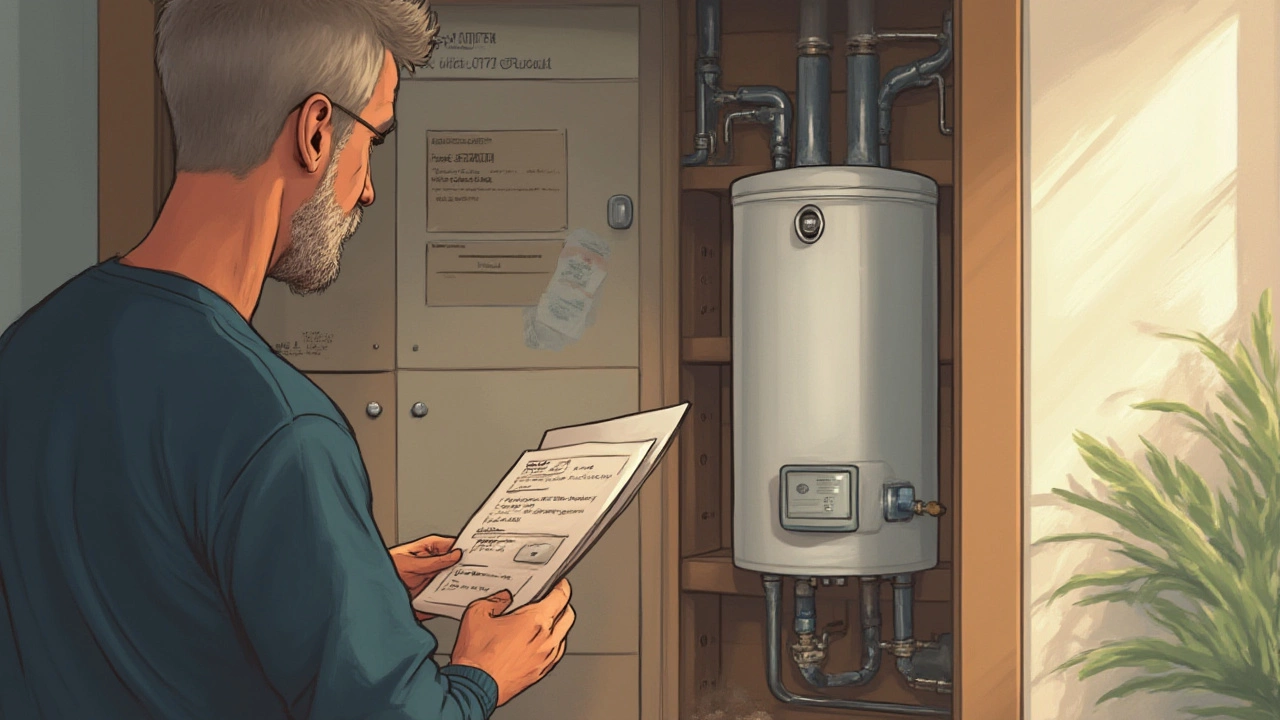
Learn if it's safe to press the reset button on your water heater, what it really does, and what to do if it keeps tripping. Get smart, simple tips for safe troubleshooting at home.
Hot water is great, but a faulty water heater can turn comfort into danger fast. Whether you have a gas boiler, electric tank, or a combo system, a few easy habits can stop leaks, burns, and carbon‑monoxide scares before they happen.
First, check the area around your heater. Keep flammable items – towels, cleaning sprays, or papers – at least a foot away. A clear space lets heat disperse and makes it easier to spot leaks or rust.
If you hear strange noises – banging, popping, or whistling – it usually means sediment is building up or pressure is off. A steady hissing might mean a gas leak, and that’s a call to step out and call a professional right away.
Look for water stains on walls or the floor. Even a small drip can become a big problem if you ignore it. Any rust on the tank, odd smells, or rust‑colored water are also red flags.
Turn off the power or gas before you start any work. For electric heaters, switch off the breaker; for gas, shut the valve.
Drain the tank once a year. Connect a garden hose to the drain valve, open it, and let the water flow out. This clears sediment that reduces efficiency and can cause overheating.
Check the pressure‑relief valve. Lift the lever a bit – water should flow out and stop when you release it. If it sticks, replace it. It’s a cheap part that saves you from a burst tank.
Test the thermostat. Most modern units have a temperature setting of around 120°F (49°C). Anything hotter can scald kids or the elderly. Adjust the knob if needed.
Inspect the venting on gas heaters. Make sure the pipe isn’t blocked by debris or nests. A blocked vent can push carbon monoxide back into your home – a silent, deadly threat.
Finally, schedule a professional inspection every two years. A qualified engineer can check gas connections, electrical wiring, and venting far better than a DIY glance.
When in doubt, call an expert. Trying to fix a gas leak, a broken heating element, or a faulty thermostat without the right tools can make things worse. A quick call now saves time, money, and safety risks later.
Remember, safety isn’t a one‑time task. A few minutes each month – clearing the area, listening for odd sounds, and checking the pressure valve – keeps your water heater humming without scares. Stay aware, do the easy checks, and let the pros handle the tricky stuff. Your hot showers and clean dishes will stay worry‑free.

Learn if it's safe to press the reset button on your water heater, what it really does, and what to do if it keeps tripping. Get smart, simple tips for safe troubleshooting at home.